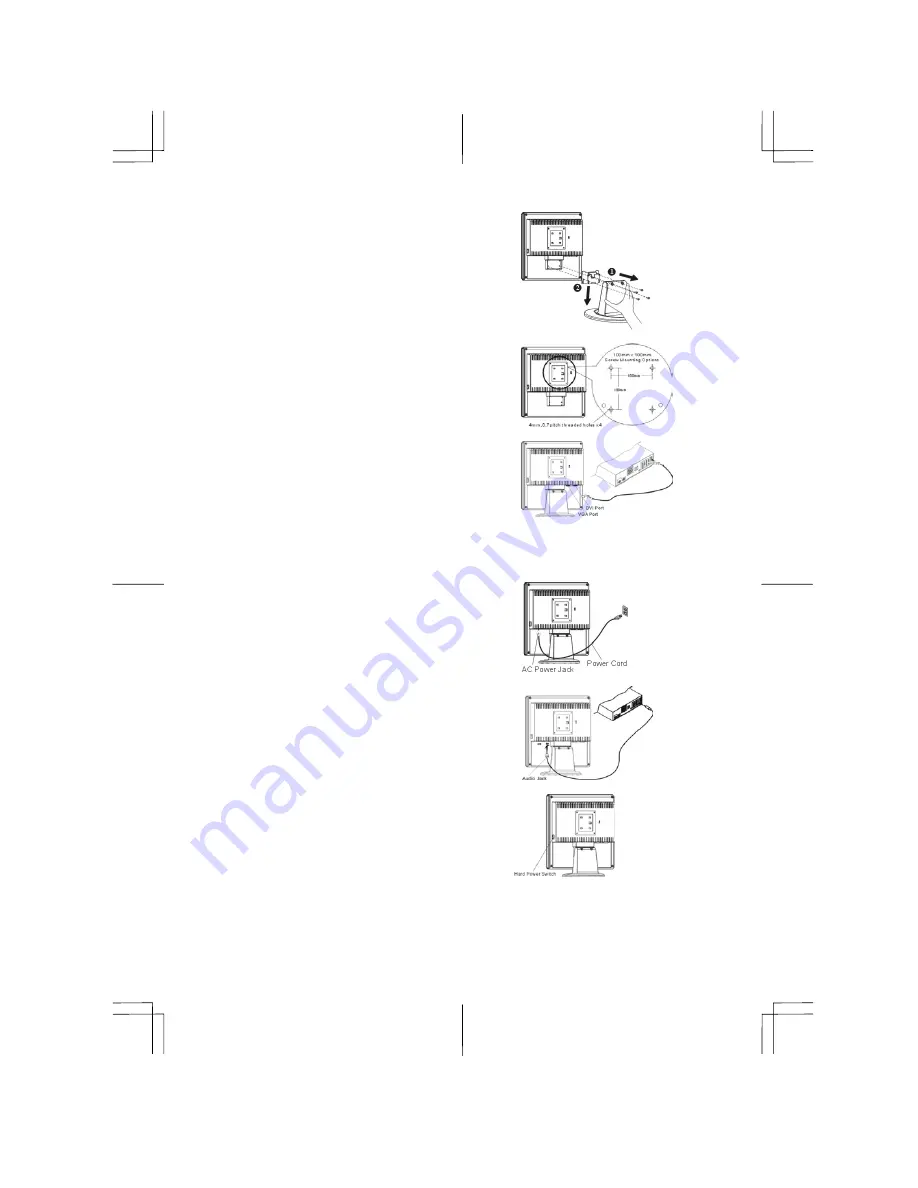
Detaching LCD Monitor from Its Stand
Unscrew screws
n
the swivel base support column and pull
down
o
the hinge to release.
Figure 1-3
Interface for Arm Applications
Before installing to mounting device, please refer to Fig.1-3.
The rear of this LCD display has four integrated 4 mm, 0.7 pitches
threaded nuts, as well as four 5 mm access holes in the plastic covering
as illustrated in Figure 1-4. These specifications meet the
VESA Flat
Panel Monitor Physical Mounting Interface Standard
(paragraphs
2.1 and 2.1.3, version 1, dated 13 November 1997).
Figure 1-4
Connecting the Display
1.
Power off your computer.
2.
Connect one end of the signal cable to the LCD Monitor’s VGA
port or DVI port.(For AL712/AL713)(See Fig 1-5)
3.
Connect the other end of the signal cable to the VGA port or
DVI port on your PC.
4.
Make sure connection are secure
.
Figure 1-5
Attention:
This device must be connected to an off-the-shelf video cable in order to comply with FCC regulations.
A ferrite-core interface cable is included in the LCD Monitor package.
This device will not be in compliance with FCC regulations when a non-ferrite-core video cable is used.
Connecting the AC Power
1.
Connect the power cord to the LCD Monitor.(Se Fig. 1-6)
e
2.
Connect the power cord to an AC power source.
Figure 1-6
Connecting the Audio Cable
(For AL712/AL716)
1.
Connect the audio cable to the " LINE OUT " jack on your PC's
audio card or to the front panel's “AUDIO OUT” jack of your
CD ROM drive. (See Fig. 1-7)
2.
Connect the other end of the audio cable to the LCD Monitor's "
LINE IN " jack.
Figure 1-7
Setting Up the LCD Monitor
1.
Turn on the LCD monitor’s hard power switch, located on the
back of the monitor
2.
Turn on the LCD Monitor's soft power switch, located on the
bezel of the monitor.
Figure 1-8
Power Management System
This LCD Monitor complies with the VESA DPMS (version 1.0) Power Management guidelines. The VESA DPMS provides
four power saving modes through detecting a horizontal or vertical sync. signal.
When the LCD Monitor is in power saving mode, the monitor screen will be blank and the power LED indicator
will light yellow.
3
Summary of Contents for AL712
Page 9: ...9 Input Signal ...









